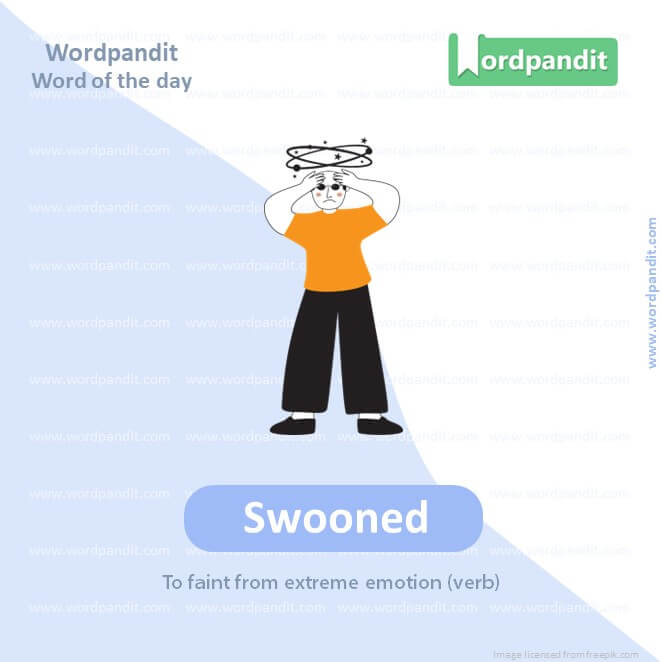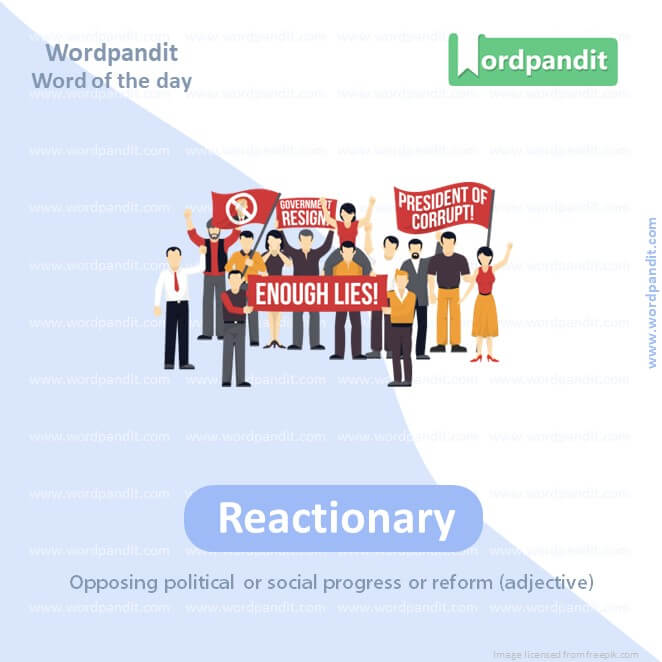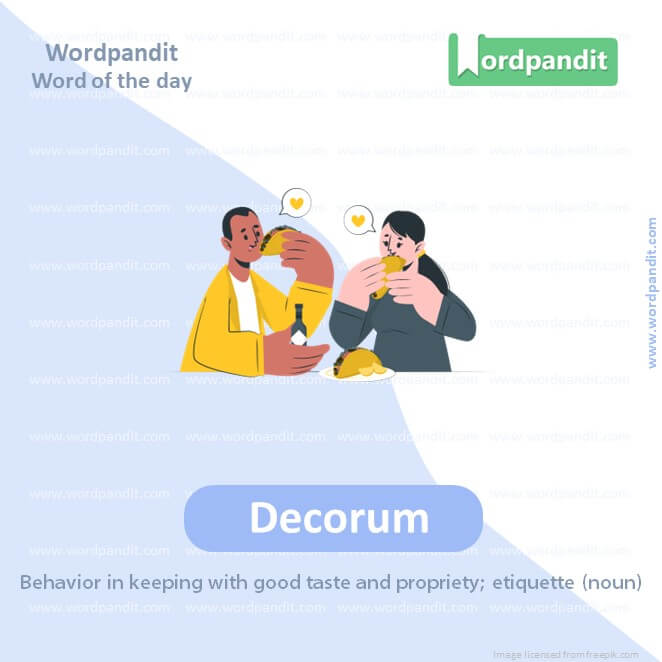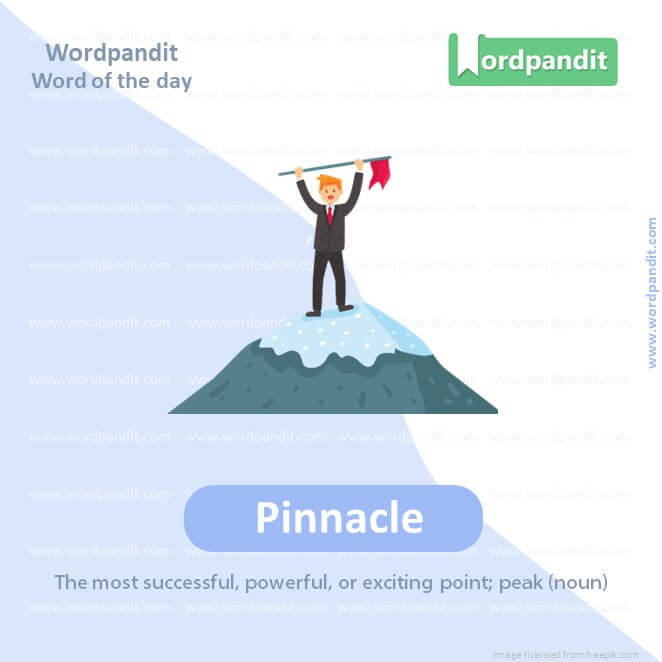Daily Vocabulary Words: List of Daily Used Words in Leading International Newspapers
Hi there. Welcome to this special section @ Wordpandit.
Our endeavour here is very simple: to highlight important daily vocabulary words, which you would come across in leading newspapers in the country. We have included the following newspapers in our selection:
• The New York Times
• The Washington Post
• Scientific American
• BBC
• The Guardian
• Psychology Today
• Wall Street Journal
• The Economist
We are putting in extensive work for developing your vocabulary. All you have got to do is be regular with this section and check out this post on a daily basis. This is your repository of words that are commonly used and essentially, we are posting a list of daily used words. Hence, this has significant practical application as it teaches you words that are used commonly in leading publications mentioned above.
Visit the website daily to learn words from leading international newspapers.

WORD-1: Swooned
CONTEXT: In 2015 and 2016, as he was becoming the Republican nominee the first time, Mr. Trump quickly transformed into an all-encompassing, central figure, in an evolving, building story that started like a dark joke that Mr. Trump was in on, then swooned into a reality.
SOURCE: The New York Times
EXPLANATORY PARAGRAPH: Imagine feeling so happy or excited when you see your favorite superhero that you almost faint. That’s what ‘swooned’ means – to faint from being very happy, excited, or overwhelmed.
MEANING: To faint from extreme emotion (verb).
PRONUNCIATION: swoond
SYNONYMS: Fainted, Passed out, Collapsed, Overcome, Overwhelmed.
USAGE EXAMPLES:
1. She swooned at the sight of the celebrity.
2. Fans swooned during the concert.
3. He nearly swooned with relief.
4. The audience swooned at the romantic scene.

WORD-2: Reactionary
CONTEXT: It seemed to click into place then that Mr. Trump’s fluid plans, reactionary ideas, jokes and lies could coexist with and shape grave events.
SOURCE: The New York Times
EXPLANATORY PARAGRAPH: Think of someone who really likes things the way they are and doesn’t want them to change, even if others think the changes are good. ‘Reactionary’ is a word for people or ideas like that – they don’t like new ways and want to go back to old ones.
MEANING: Opposing political or social progress or reform (adjective).
PRONUNCIATION: ree-ak-shuh-ner-ee
SYNONYMS: Conservative, Traditionalist, Right-wing, Orthodox, Conventional.
USAGE EXAMPLES:
1. His views were considered reactionary.
2. The policy was criticized as too reactionary.
3. Reactionary forces opposed the new law.
4. She challenged the reactionary opinions in the meeting.
WORD-3: Supernova
CONTEXT: The combined effect of all this was to concentrate the country’s attention like a supernova; reaction to Mr. Trump became a constant feature of politics and also people’s personal lives.
SOURCE: The New York Times
EXPLANATORY PARAGRAPH: Imagine a star in space that suddenly gets super bright and explodes; it’s really amazing to see. That’s a ‘supernova’ – a huge explosion of a star, shining very brightly for a short time.
MEANING: A stellar explosion that is extremely luminous and causes a burst of radiation (noun).
PRONUNCIATION: soo-per-noh-vuh
SYNONYMS: Starburst, Explosion, Stellar blast, Nova, Celestial explosion.
USAGE EXAMPLES:
1. The astronomer observed a supernova in a distant galaxy.
2. The supernova was brighter than any other star in the sky.
3. Supernovas can outshine entire galaxies.
4. The remnants of the supernova are still visible through telescopes.

WORD-4: Wandering
CONTEXT: But the path toward his likely renomination feels relatively muted, as if the country were wandering through a mist, only to find ourselves back where we started, except older and wearier, and the candidates the same.
SOURCE: The New York Times
EXPLANATORY PARAGRAPH: Think of walking around without a specific place to go, just exploring and looking at things. That’s what ‘wandering’ means – walking or moving around without a particular direction or purpose.
MEANING: Traveling aimlessly from place to place; meandering (verb).
PRONUNCIATION: wahn-der-ing
SYNONYMS: Roaming, Drifting, Strolling, Meandering, Ambling.
USAGE EXAMPLES:
1. They spent the day wandering through the city.
2. His mind was wandering during the lecture.
3. She enjoyed wandering along the beach.
4. The child was found wandering in the park.
WORD-5: Omnipresence
CONTEXT: Why does the volume around Mr. Trump feel different? For one thing, he has opted out of two old ways he achieved omnipresence, no longer tweeting and no longer appearing at Republican debates.
SOURCE: The New York Times
EXPLANATORY PARAGRAPH: Imagine being able to be everywhere at the same time, like a superhero. ‘Omnipresence’ means being present everywhere at the same time, like magic.
MEANING: The state of being widespread or constantly encountered; present everywhere (noun).
PRONUNCIATION: om-ni-prez-uhns
SYNONYMS: Ubiquity, Pervasiveness, Universality, Everywhere, All-present.
USAGE EXAMPLES:
1. The omnipresence of technology in our lives is undeniable.
2. She felt the omnipresence of nature on the island.
3. The company’s logo achieved omnipresence in the market.
4. He talked about the omnipresence of certain cultural themes.

WORD-6: Decorum
CONTEXT: If Gay is to go, let it be after more deliberation, with more decorum, and when pundits like me aren’t writing about her.” Oh, well.
SOURCE: The New York Times
EXPLANATORY PARAGRAPH: Think of acting nicely and politely at a fancy dinner, like using your manners. ‘Decorum’ is behaving in a calm, controlled, and respectable way in different situations.
MEANING: Behavior in keeping with good taste and propriety; etiquette (noun).
PRONUNCIATION: deh-kor-uhm
SYNONYMS: Properness, Etiquette, Politeness, Dignity, Correctness.
USAGE EXAMPLES:
1. She always maintained decorum in social events.
2. The students were praised for their decorum.
3. He lacked the decorum expected of a leader.
4. The ceremony was conducted with great decorum.

WORD-7: Pinnacle
CONTEXT: The answer, I think, is this: Where there used to be a pinnacle, there’s now a crater.
SOURCE: The New York Times
EXPLANATORY PARAGRAPH: Imagine standing on the very top of a huge mountain, higher than anywhere else. That’s like being at a ‘pinnacle’ – it means the highest or most successful point of something.
MEANING: The most successful, powerful, or exciting point; peak (noun).
PRONUNCIATION: pin-uh-kul
SYNONYMS: Peak, Apex, Summit, Zenith, Climax.
USAGE EXAMPLES:
1. She reached the pinnacle of her career.
2. The invention marked the pinnacle of his achievements.
3. Climbing to the pinnacle of the mountain was challenging.
4. The team was at the pinnacle of the league.
WORD-8: Crater
CONTEXT: The answer, I think, is this: Where there used to be a pinnacle, there’s now a crater.
SOURCE: The New York Times
EXPLANATORY PARAGRAPH: Think of a big hole in the ground caused by something like a meteorite or a volcano. That hole is called a ‘crater.’ It’s usually round and can be very big.
MEANING: A large, bowl-shaped cavity in the ground or on the surface of a planet or the moon, typically one caused by an explosion or the impact of a meteorite (noun).
PRONUNCIATION: kray-ter
SYNONYMS: Hollow, Pit, Basin, Depression, Cavum.
USAGE EXAMPLES:
1. The meteor left a huge crater in the field.
2. They explored lunar craters.
3. The explosion created a crater in the road.
4. A volcanic crater can be seen at the summit.
WORD-9: Detractors
CONTEXT: Whenever it elevates someone like Gay, there’s an assumption by admirers and detractors alike that she’s a political symbol whose performance represents more than who she is as a person.
SOURCE: The New York Times
EXPLANATORY PARAGRAPH: Think of people who always say negative things about what someone else is doing or trying to do. ‘Detractors’ are people who do not support someone or something and often criticize them.
MEANING: People who criticize someone or something and try to lower its reputation (noun, plural).
PRONUNCIATION: deh-trak-ters
SYNONYMS: Critics, Opponents, Skeptics, Naysayers, Disparagers.
USAGE EXAMPLES:
1. Despite the detractors, she continued her work.
2. He had many detractors in the media.
3. The plan’s detractors argued it was too costly.
4. Her innovative ideas attracted several detractors.
WORD-10: Antisemitic
CONTEXT: Last year, the number had fallen to 36 percent, and that was before the wave of antisemitic campus outbursts. At Harvard, early admission applications fell by 17 percent last fall.
SOURCE: The New York Times
EXPLANATORY PARAGRAPH: ‘Antisemitic’ is a word that describes people or actions that are very unfair and hateful towards Jewish people. It’s when someone doesn’t like or respect someone just because they are Jewish, which is not nice at all.
MEANING: Showing hostility or prejudice against Jews (adjective).
PRONUNCIATION: an-tee-sem-i-tik
SYNONYMS: Anti-Jewish, Racist against Jews, Judaophobic, Bigoted against Jews, Prejudiced against Jews.
USAGE EXAMPLES:
1. The graffiti was of an antisemitic nature.
2. She spoke out against antisemitic remarks.
3. The organization was accused of antisemitic practices.
4. Educating people is essential to combat antisemitic attitudes.
Vocabulary Daily Words
Among the myriad aspects of language learning, the role of ‘vocabulary daily words’ attests to their undeniable importance. These everyday words form the bedrock of communication. Whether used in casual chat or formal discussion, the fluency and understanding of ‘vocabulary daily words’ can significantly uplift the quality of interaction. However, the vital question is, how to effectively learn these ‘vocabulary daily words’?
The crux of learning ‘vocabulary daily words’ lies in a well-rounded approach that encompasses exposure, understanding, memorization, and practice. Rote memorization might seem like a quick solution, but it lacks context and, thereby, retention. Hence, opt for a diverse range of resources like books, newspapers, podcasts, and digital media. These will bring ‘vocabulary daily words’ to life, providing real-life usage examples and making the learning process inherently engaging.
Next, using memory-enhancing techniques can significantly improve retention of ‘vocabulary daily words’. Techniques such as flashcards or the Leitner System align with the principles of spaced repetition, allowing more effective and long-term learning. Incorporating mnemonic devices, associating new words with unique stories or images, can further facilitate this learning process.
The key to fully grasping ‘vocabulary daily words’ lies in practical usage. Make it a habit to use these words in your daily communications. Whether it’s a friendly conversation, a professional email, or a social media post, try integrating these new words. Doing so provides hands-on practice, strengthening your comprehension and application of these words.
In a nutshell, ‘vocabulary daily words’ are a treasure in the language learning landscape. By harnessing diversified resources, utilizing memory techniques, and actively using these words, your grip on the ‘vocabulary daily words’ will strengthen significantly. So, turn the pages, hit play, start a conversation, and let these ‘vocabulary daily words’ shape the story of your linguistic journey.







